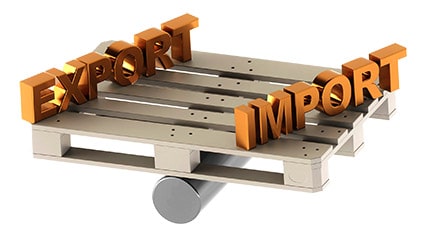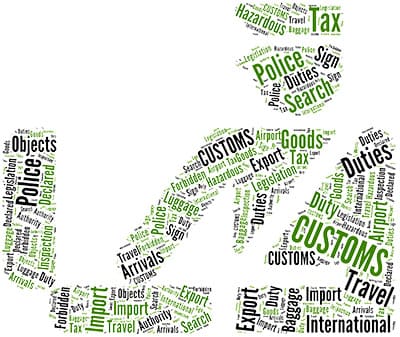Parallel Imports in Middle East and India
Introduction
 Parallel Imports
Parallel Imports
The term parallel import denotes importation of goods legitimately acquired from the owner of the goods subsequently sold in an unauthorized manner through unauthorized trade channels.
These goods may also be referred to as grey market goods, since, despite being legitimate, they lose their value when they are sold through unauthorized trade channels. An owner of a registered trademark earns goodwill through the sale of his goods through a particular channel as authorized by them; however, once the goods leave that channel, it compromises the integrity and reputation of the goods that have been registered as a trademark.
There are two types of parallel imports, namely, active parallel imports and passive parallel imports.
- Active Parallel imports
When a licensee of the trademark owner sells goods in the jurisdiction of the right holder itself or in the jurisdiction of another licensee who is in direct competition thereof, in this type of parallel import the breach arises when the licensee acts in contravention of the contract between him and the right holder.
- Passive Parallel imports
This kind of parallel import is much more common; it arises when a third-party purchases goods owned by the right holder from one country and resell the same in another country.
A breach of an agreement between the parties regarding parallel imports is done with the intention of gaining higher profits due to price differences of identical goods. When such a breach arises, it contravenes any such provisions regarding international licensing and distribution as agreed upon between the licensee and the right holder. Therefore, it is imperative to keep watch on where the goods are being distributed and to ban the distribution of goods in such countries as prohibited by the right holder.
Doctrine of Exhaustion
An owner of an intellectual property right possesses the sole exploitation rights over his goods. He is further empowered to be protected by such laws in the country where such protection is granted to him. The Doctrine of Exhaustion or first sale doctrine is basically an exception to this rule, and it entails the exhaustion of rights of the right holder once he has consented to the lawful sale of the products covered under the intellectual property rights held by him.
To understand this concept better, let’s take the example of reselling preowned cars. A manufacturer or a right holder has the authority to prohibit other manufacturers from selling his product; however, this right is exhausted once the car is sold lawfully to a customer and that customer decides to resell the same to a third party. The right holder shall then, not have any rights over prohibiting such resale. This basically means that the right to sale over the same goods cannot be practiced twice by the right holder.
The doctrine of exhaustion can be divided into the following types:
- Regional Exhaustion
The doctrine of regional exhaustion has been adopted by the European Union. This doctrine basically imposes a disability on the right holder to prevent the subsequent sale of a product in the same region (here, the EU) or any other country that is part of the same region.
- National Exhaustion
This doctrine relates to the domestic market. Once the first sale has been made within the domestic market, the right holder is prohibited from receiving any further profits or claiming any rights over a subsequent transaction that takes place in that regard. This doctrine basically prevents the right holder from receiving profits multiple times out of the same transaction or from goods that have been sold by him once. It, therefore, protects the rights over profits of the party, making the subsequent sale of goods.
- International Exhaustion
This doctrine is based on the presumption that once the goods are placed on the market, they leave the control of the right holder. Therefore, this doctrine basically views the international market as a singular market; hence, goods sold by the right holder, for the first time, anywhere across the borders, cause the right holder to relinquish his rights thereof.
It is imperative to note that, the abovementioned doctrines can only be adopted as per the regime that is chosen by the country concerned in order to curb such practice.
For instance, A, a right holder, sells his product to a third party within his territory who further sells those products to B, in another country. The question that would arise in such a situation would be whether A’s rights have been exhausted once the first sale of the product is completed. This question can only be answered by taking into consideration the international exhaustion regimes adopted by A’s country.
TRIPs on Parallel Imports
 The Agreement on Trade-Related Aspects of Intellectual Property Rights (popularly known as TRIPs Agreement) is an international agreement between member nations of the WTO, and this agreement lays down provisions regarding effective implementation of trade-related intellectual property protection.
The Agreement on Trade-Related Aspects of Intellectual Property Rights (popularly known as TRIPs Agreement) is an international agreement between member nations of the WTO, and this agreement lays down provisions regarding effective implementation of trade-related intellectual property protection.
That being said, the TRIPs agreement does not contain any such concrete provision regarding parallel imports. Dispute settlement mechanisms under the agreement allow right holders to bring action against another state; however, Article 6 of the Agreement states that no complaint can be entertained with regards to exhaustion.
Further, the TRIPs agreement, with regards to English and Japanese law, does not contain any such provision barring importation of goods subject to a notice being given about restrictions regarding such importation.
Despite not containing any such provisions regarding parallel imports within its Articles, it is important to note that, it gives States the right to choose any such regime that they may think fit regarding international exhaustion within their domestic laws.
Parallel imports in the Middle East
Many Middle Eastern countries do not have any laws prohibiting parallel imports in the country. Countries like Kuwait, Bahrain, and Turkey etc. are a few that do not prohibit parallel imports under their trademark law. However, the following countries have other provisions that may be implemented to bar parallel imports;
- Kingdom of Saudi Arabia
Though KSA does not recognize the term parallel imports in its trademark laws, there are provisions in the customs law prohibiting imports/ exports of goods by unauthorized agents. The rights holder may register themselves with the Customs along with a list of those agents, as authorized by them. An agent or distributor selling goods in an unauthorized fashion may be issued a cease and desist notice and further can be dragged to court for non-compliance of the same before the Ministry of Commerce.
Further, in Saudi Arabia parallel imports of copyright material is prohibited. The Copyright legislation in KSA prohibits the import and exports of copies that are not authorized for distribution, any such unauthorized sale, import or export shall be deemed to be infringement under Copyright Law. Moreover, copies of printed material and computer programs can be distributed subject to the prior assent of the Ministry of Culture and Information.
- Jordan
Genuine import and export of goods are allowed regardless of whether the agent importing/exporting it is authorized or not. However, as per customs law, action can be brought about in case of counterfeit goods.
As per Article 37 of the Law on Patents of Invention of the Kingdom of Jordan (Law No. 32, of 1999, as amended by Temporary Law No. 71, of 2001); the law prohibits any person from importing any material or goods from a third party in an unauthorized manner, when the owner of the patent rights enjoys protection thereof. However, if such an importation is lawful, the person engaged in importation of such materials or goods must comply with the principles of commercial competition. Article 37, also requires the person importing to take into account the economic value of the patent concerned. Under Jordanian Law patent rights are subject to international exhaustion, however, in cases when the parallel import fails to comply with the principles of commercial competition, the patent owner is entitled to oppose it.
- Qatar
The right holder having a trademark registered within the territory of Qatar is not entitled to bring any action regarding parallel imports. However, under their Agency Laws, the right holder may bring action against an unauthorized agent.
- UAE
The UAE is no stranger to the phenomenon of parallel imports. However, the concept of parallel import is not recognized by UAE trademark laws. Thus, in order to cease parallel imports in the country Agency Laws may be applied to prohibit the same. The Agency Laws entitles an Agent to have exclusive rights to sell within a country as per the terms of contract entered into. In order to avail the remedy under this law, the Agency Agreement should be registered with the Ministry of Economy, the absence of which may render the Agreement void. Parallel imports in the UAE are further discussed in detail herein below.
- Oman
Parallel Imports in the UAE
The UAE, like several other Middle Eastern countries, does not contain provisions relating to parallel imports in their trademark laws. However, in order to cease the flow of parallel import goods in an unauthorized manner, Agency Laws may be applied.
Commercial Agency Law by Federal Number 18 of 1981 amended by Federal Law Number 2 of 2010 lays down certain requirements of a commercial agent:
- A commercial agent shall be a UAE national or a company in the UAE owned in 100 percent capacity thereof by a national.
- Only agents registered under the Ministry of Economy and Commerce are authorized to engage in business.
- The agent and the principle are to be bound by a written agreement, which must be registered with the Ministry of Economy and Commerce.
Therefore, as per the above, any goods imported in contravention of the above are liable to be ceased by Customs, and the Police is entitled to take custody thereof. Further, action can only be invoked if the above conditions are satisfied. If an agreement is entered into unaccompanied by registration, the agreement is void ab initio.
It is important to note that counterfeit and unauthorized goods being sold with regard to the pharmaceutical sector poses a major threat to public health and safety. Especially in GCC countries wherein, the IPR laws are not as stringent regarding parallel imports. With regards to pharmaceutical products, it is important for the right holder to have full control over the distributional channels that their products pass through. Therefore, GCC countries must put in place policies that prevent illicit trade. GCC countries should also focus on scrutinizing free zones to rule out the possibility of counterfeiting.
Further, the UAE enables manufacturers and trademark holders to approach the courts regarding parallel importation under anti-piracy laws as well. A landmark case saw the imprisonment of six foreign nationals who engaged in importing goods from another country without the permission of the right holder. In this case, the six persons including the shop manager engaging in the sale of such goods were arrested following a raid of their shop, with imprisonment of the manager for a period of two months along with a fine of AED 20,000 and deportation. This ruling set a precedent and further strengthened UAE’s as a safe business hub.
Indian Perspective
Trademark rights are exclusive in nature, and this exclusivity is recognized by the Trademarks Act of 1999. Unlike several other jurisdictions, India has adopted specific regulations regarding exhaustion of rights on a national level; however, the same is not identified for international exhaustion. Section 30 of the Trademark Act affirms the aforementioned. The provisions enumerated under Section 30 lay down that an owner of a registered trademark may oppose further dealings of goods provided a legitimate reason exists in that regard.
The concept of international and national exhaustion was disputed in the case of Kapil Wadhwa vs. Samsung Electronics before the Delhi High Court. In the aforementioned case, the main issue was whether international exhaustion recognized by the Act. The defendant herein was an authorized dealer of Samsung products; however, it was argued by the plaintiff that the defendant failed to follow the norms that were set by them regarding pricing and the defendant was selling legitimate Samsung products at a price lower than the standard price set. To which the defendant argued that the sale of genuine products does not amount to infringement under Section 30.
The judges in the matter held that the defendant should be restrained from importing products from other countries and displaying the same in their shop. It was further held that, if any product is being imported from another country and being sold in the domestic market, the shop owner must clearly display the same therein. In favor of the plaintiff, it was held that they are not entitled to give any warranty with regards to such products that have been imported and the duty to provide the consumer with a warranty lay solely on the defendant.
Conclusion
 Parallel imports have significance in both the legal and economic sphere. The legal connotation establishes that the goodwill of a trademark holder shall not be compromised by causing deception and confusion in the minds of the consumers. However, the economic aspect of parallel imports promotes the availability of goods across borders and in turn, prevents the possibility of monopoly over a certain market.
Parallel imports have significance in both the legal and economic sphere. The legal connotation establishes that the goodwill of a trademark holder shall not be compromised by causing deception and confusion in the minds of the consumers. However, the economic aspect of parallel imports promotes the availability of goods across borders and in turn, prevents the possibility of monopoly over a certain market.
Therefore, parallel imports have both positive and negative ramifications depending on the perspective adopted. The consumers face the positive impacts wherein they are able to buy goods at lower prices, whereas, the trade owners face the negatives, with regards to losing integrity and credibility of their brand.
 English
English
 عربي
عربي Русский
Русский 官话
官话 português
português
 Türk
Türk 















